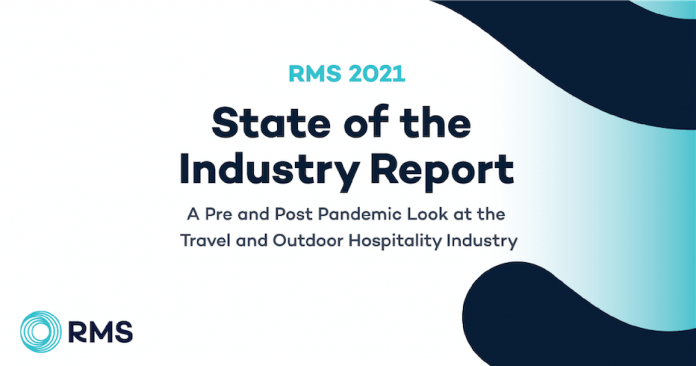
Things are looking up despite the hotel industry being largely affected in 2020 and 2021 by the pandemic. As we enter the upcoming travel season, one that looks like it will be the busiest time for travel in more than a year, it’s time to get to the bottom of what travelers really want. RMS recently conducted independent research on consumer travel preferences, surveying 350 people. Here are three key takeaways from the research:
1Remote workers prefer to work from a hotel while on the road
This is extremely positive news for hotels, as many businesses plan to permanently offer remote work now. When given the option to stay at a campground, Airbnb, extended-stay hotel, or traditional hotel, 42.3 percent of consumers surveyed indicated that their number-one preference is to stay at a traditional hotel while working remotely. Reliable internet, pricing deals, and hotel amenities are likely what draws remote workers to the traditional hotel as opposed to campgrounds or Airbnbs, which may not be as centrally located or reviewed as traditional hotels. Make sure potential guests know you’re ready for their working stays by ensuring your internet is fast, reliable, and affordable to guests, and advertise this where you can. Creating and promoting pricing specials while highlighting amenities on your website, review sites, and social accounts will give you an advantage over other hotels when travelers research hotels near their destinations.
2Travelers are headed to specific destinations for their trips
In addition to wanting to travel within driving distance, 22.3 percent of travelers are prioritizing specific travel destinations, such as Disneyland or the beach. People are starting to fly more now with the increase of vaccinations providing comfort to travelers, but the RMS research indicates that the preference is still local travel, and to a specific location. Due to increased caution and remote-work options, consumers prefer structured travel destinations and controlled travel methods, such as driving in their cars and pre-planned, local activities. Hoteliers can use this to their advantage by partnering with local destinations, ensuring visitors know that their hotel is right around the corner and ready for their visit. Advertise plenty of local destination options to make their decision to stay with you as convenient and enticing as possible. Consider offering rideshare vouchers or other shuttle services to local destinations as well—and be sure to promote these amenities prominently.
3Word-of-mouth and review sites influence stay decisions the most
If you’re wondering which tools are best for marketing your hotel, the results of the RMS report may give you insight into where consumers are looking. According to the RMS research, 35.1 percent of consumers surveyed indicated that review sites such as Yelp, Google, and TripAdvisor have the most influence on a traveler’s decision. These tools are far more influential than Facebook and Instagram—so you may want to focus on encouraging positive reviews and adding images to those sites as opposed to social media only. In a close second, word-of-mouth recommendations influence destination choices as well, so be sure local businesses that may attract out-of-towners know about your hotel and are ready to provide a recommendation—and maybe even offer a promotion.
Hotel and travel industries should be prepared for a much busier year in 2021. People may still be warming up to flying, but the increase in remote workers and relaxing of travel restrictions will continue to bring visitors to your hotels. Be sure to focus on review sites, spreading a positive word about your hotel, and preparing your property with reliable and fast internet, and you’ll be off to a great start to the summer season. The three takeaways above are only the tip of the iceberg when it comes to consumer travel data from RMS. Download the full report to learn more.
Sponsored by RMS North America











